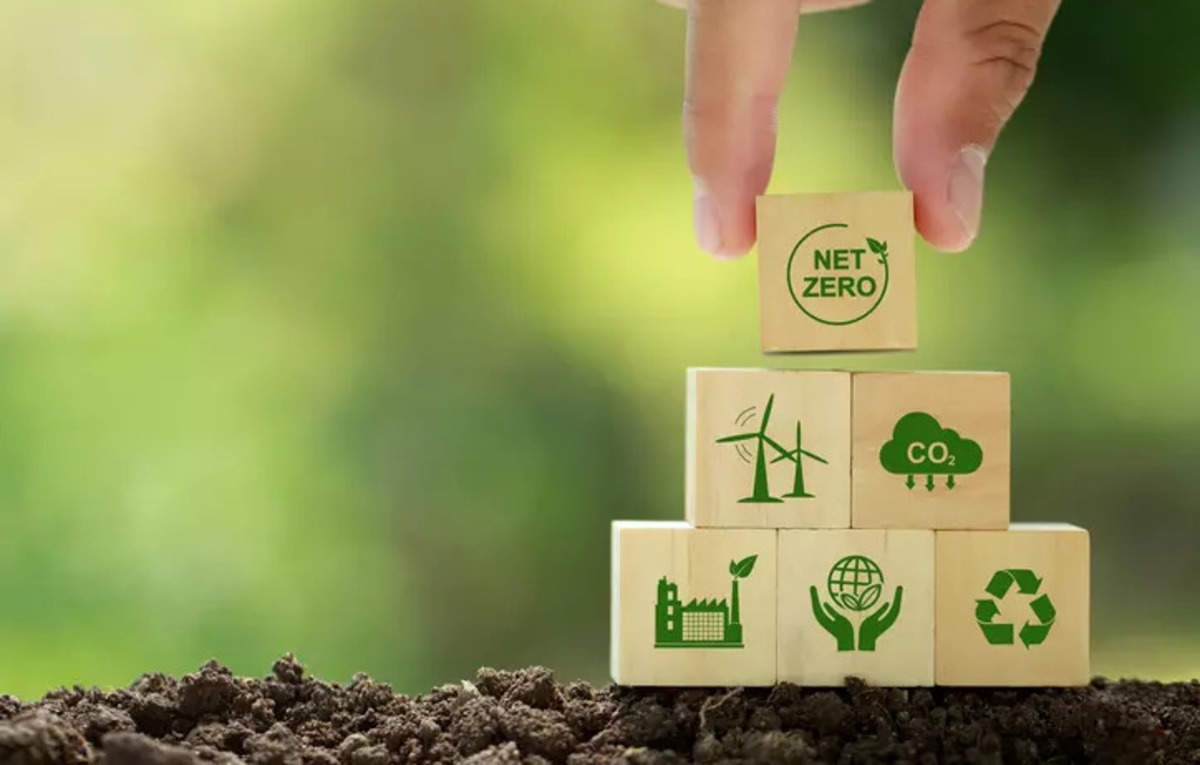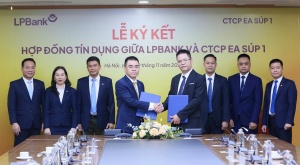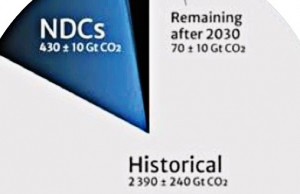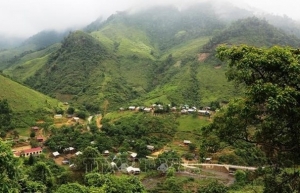Vietnam seals major carbon credit deal, fetching $53 million
 |
This marks a significant stride in both the environmental and economic realms for the country.
The carbon credits, derived from the forest regions of north central Vietnam, are part of the Emission Reductions Payment Agreement (ERPA) established on October 2020 between the International Bank for Reconstruction and Development (IBRD), part of the World Bank Group, and Vietnam's Ministry of Agriculture and Rural Development.
The first phase of the ERPA involved transferring 10.3 million tonnes of CO2 to the World Bank, valued at $51.5 million. This translates to about $5 per tonne.
In early August, the World Bank disbursed $41.2 million, covering 80 per cent of the emission reductions stipulated in the ERPA. The remaining balance of $10.3 million will be settled following the complete transfer of CO2.
Funds from this transaction are earmarked for distribution among forest owners, local authorities, and organisations tasked with natural forest management. A portion of the proceeds will also be allocated to initiatives aimed at reducing forest loss and degradation, thereby enhancing the income and livelihoods of those involved in forestry.
The Vietnam Forest Protection and Development Fund is designated as the central entity for receiving, managing, and utilising the funds from the ERPA.
This includes coordination with the Forest Protection and Development funds of six provinces in the north central region: Thanh Hoa, Nghe An, Ha Tinh, Quang Binh, Quang Tri, and Thua Thien-Hue.
Beyond the credits already sold, the World Bank confirmed a total reduction of 16.21 million tonnes of CO2 for the entire north central region in the first period (January 1, 2018-December 31, 2019), of which 10.3 million tonnes were part of the ERPA transfer.
"The World Bank is keen on acquiring an additional one million tons out of the remaining 5.91 million tonnes of CO2. We are currently seeking governmental approval to develop a plan for trading or transferring the residual 4.91 million tonnes, to further support forest protection and development in the region," the ministry official said.
Forest carbon credits are generated through greenhouse gas emission reduction activities such as curbing deforestation and forest degradation, and promoting afforestation, reforestation, vegetation restoration, and enhanced forest management. These credits provide an opportunity for forest owners to monetise the CO2 absorption capacity of their managed forests in the burgeoning carbon market.
 | LPBank and Ea Sup 1 agree green credit deal LPBank and Ea Sup 1 Corporation have signed a credit agreement valued at approximately VND2 trillion ($84 million). The move, announced on November 9 at LPBank's Hanoi headquarters, focuses on the shift towards green credit financing. |
 | Putting the carbon market to work The Paris Agreement, adopted in 2015, represents a historic global effort to combat climate change with the primary goal is to limit global warming to well below 2°C above pre-industrial levels, with an aspiration to keep it within 1.5°C. Achieving this ambitious goal is contingent on the collective efforts of nations to reduce greenhouse gas (GHG) emissions. |
 | Quang Binh receives over 3.38 million USD from selling carbon credit The central province of Quang Binh got more than 82 billion VND (3.38 million USD) for its efforts to reduce greenhouse emissions in 2023, becoming the first locality in Vietnam to receive payment under the Emissions Reduction Purchase Agreement (ERPA). |
What the stars mean:
★ Poor ★ ★ Promising ★★★ Good ★★★★ Very good ★★★★★ Exceptional
Related Contents
Latest News
More News
- $100 million initiative launched to protect forests and boost rural incomes (January 30, 2026 | 15:18)
- Trung Nam-Sideros River consortium wins bid for LNG venture (January 30, 2026 | 11:16)
- Vietnam moves towards market-based fuel management with E10 rollout (January 30, 2026 | 11:10)
- Envision Energy, REE Group partner on 128MW wind projects (January 30, 2026 | 10:58)
- Vingroup consults on carbon credits for electric vehicle charging network (January 28, 2026 | 11:04)
- Bac Ai Pumped Storage Hydropower Plant to enter peak construction phase (January 27, 2026 | 08:00)
- ASEAN could scale up sustainable aviation fuel by 2050 (January 24, 2026 | 10:19)
- 64,000 hectares of sea allocated for offshore wind surveys (January 22, 2026 | 20:23)
- EVN secures financing for Quang Trach II LNG power plant (January 17, 2026 | 15:55)
- PC1 teams up with DENZAI on regional wind projects (January 16, 2026 | 21:18)

 Tag:
Tag:




















 Mobile Version
Mobile Version